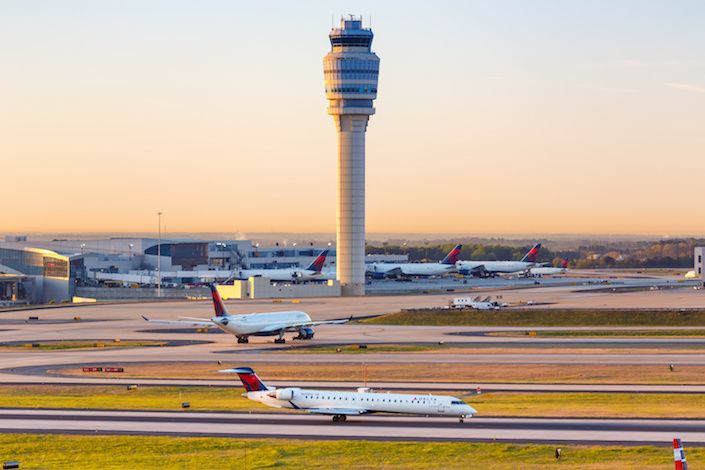Where travel agents earn, learn and save!
News / Atlanta Airport eyes 100% renewable energy within 13 years
Atlanta's Hartfield-Jackson is not the biggest this year but it's on the fast track to going green

Just as it loses it busiest global airport crown, Hartsfield-Jackson Atlanta International Airport (ATL) now has its sights set on being the greenest.
Owned by the City of Atlanta, ATL has committed to the City of Atlanta's 100% Clean and Renewable Energy by 2035 and the Airports Council International (ACI) Net Zero by 2050 goals.
Announcing this in February, Atlanta Mayor Andre Dickens said, "The airport's plan to achieve net-zero carbon emissions by 2050 is both ambitious and necessary. Accomplishing this goal will allow us to position the airport as the world's leader in passenger volume, efficiency and sustainability."
Sustainability is not something to be parked away
To be released later this year, ATL's 2035 Sustainable Management Plan will present a roadmap focussed on three different emission sources or scopes; emissions created on site, those purchased from the energy grid and emissions that the airport has no control over, such as from airlines and tenants.
With more than 110 million passengers in 2019, car parking is a big issue for ATL, which provides more than 30,000 public spaces. The new ATL West parking deck had a 'soft' opening in 2021, and now its sustainability measures have been verified by Parksmart. This certification program defines sustainable practices in parking structures.
Parksmart certification evaluates a facility's management, programs, technology and structure design to compile a ranking based on 48 measures. These include energy efficiency, reduced wastage, mobility choices, contactless systems and electric vehicle charging stations.
ATL general manager Balram 'B' Bheodari said the airport is committed to positioning itself for the future, adding,
"We have a responsibility to make sure we create a clean, sustainable environment for the generations that come after us. It won't be easy, but nothing worth pursuing is ever easy."
The determined efforts in Atlanta are being recognized globally and have been used as a case study in ACI's Sustainability Strategy for Airports Worldwide, published in November 2021. The study praises ATL for already exceeding energy and water consumption standards and building a culture of sustainability and accountability throughout the organization.
Based on ACI's 2021 World Airport Traffic Report, which analyses 2020 data, for the first time in 20 years, ATL was not the world's busiest airport, ceding the top spot to China's Guangzhou Baiyun International Airport (CAN).
ACI says that global traffic in 2021 is expected to reach only half of what it was in 2019, with countries with strong domestic markets, such as the US and China, registering the fastest recoveries.
Atlanta shares title as best big airport for passengers
While it has lost its busiest airport ranking, ATL has shared the 2021 Airport Service Quality Award, in the over 40 million passengers per-year category, with Canada's Toronto Pearson International Airport.
The awards are based on data collected in 2021 from more than 370,000 surveys from close to 400 participating airports in 95 countries. Passengers rate their airport experience across 34 key performance indicators, and the awards are produced jointly by ACI World and Amadeus.
Airports devour vast amounts of capital, and increasingly investors are demanding to see how projects meet and report on their environment, social and governance (ESG) standards.
As we have seen on many occasions, airports, such as Heathrow, already face public backlash when doing developments, so having their green credentials in place will be vital in the future.











